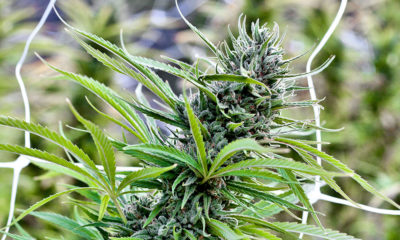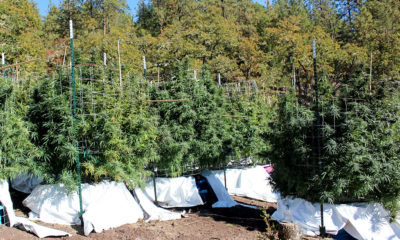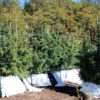
Cultivation
The Rise of American Hemp
Since the passing of a 2014 farm bill, states that have legalized industrial hemp production have established pilot programs for research purposes.
Hemp, which is sometimes referred to as cannabis’ sober cousin, was once a vital part of the United States economy – a long, long time ago. But that all ended once Harry Anslinger fiendishly managed to convince the federal government that the cannabis plant was a product of the Devil himself. Even though hemp absolutely cannot produce any intoxicating results, it was lumped into Uncle Sam’s nationwide ban on the substance back in 1937, pulling a serious cash crop from the pockets of the American farmer.
However, there has been some momentum over the past several years that some believe may have the capacity to pull hemp production in the U.S. out of the trenches of prohibitionary confinement, allowing it to become the flourishing industry that it was always destined to be. Several hemp bills are currently lingering in the halls of Congress waiting for some action. The problem is there just isn’t enough Republican support for anything even remotely resembling the legalization of marijuana to get any of these bills rolling towards approval.
Thankfully, not every Republican has completely shut down the hemp issue. Earlier this year, Senate majority leader Mitch McConnell (KY) got behind the Industrial Hemp Farming Act of 2015, which seeks to remove hemp from the Controlled Substances Act and essentially legalize hemp production once again across the nation. McConnell told Politico back in March that Kentucky was already “laying the groundwork” for an industrial hemp market with its pilot program, and that he was looking forward to “seeing industrial hemp prosper in the Commonwealth.”
Unfortunately, despite the news of McConnell’s pledge of support for the federal legalization of hemp, the bill still remains in a position of political purgatory. Again, Republican support on this issue is extremely limited and there is no word, at least at this point in 2015, whether its status will change before the end of the year.
Nevertheless, there is a limited amount of hemp production currently underway in the United States since the passing of a 2014 farm bill. This slight reform allows states that have legalized industrial hemp production to establish pilot programs for research purposes, but it is impossible for an industry to exist because there are too many federal limitations.
According to a recent article from National Geographic, some manufacturers of hemp housing predict a surge in production in the near future, perhaps increasing hemp homes currently from the 12 currently in existence to somewhere around 50 in 2016.
“We are at a tipping point,” says Greg Flavall with Hemp Technologies Collective, a company that manufactures hemp insulation. He explained that the company has experienced an increase in “inquiries” pertaining to the use of hemp in housing construction, but from the sound of it, the orders are not exactly rushing in.
Perhaps this is because there is still a huge conundrum surrounding hemp in the U.S. In addition to its current illegal status at the federal level, there are a wealth of other issues ranging from getting seeds, the medical marijuana community pitching a fit over cross-pollination and a lack of contractors willing to incorporate the material into their work. Some experts, like Cliff Thomason, president of ORHEMPCO, believe the industry is about to engage in “hemp wars” because all of the separate interests that exist within the cannabis industry are fighting each other tooth and nail.
Ultimately, the reason hemp farming isn’t getting the push it needs from the top to become the next great American industrial revolution seems to stem from the fact that many lawmakers are convinced that repealing the nationwide ban on hemp production will lead to the full-scale legalization of cannabis. There are also concerns that even if hemp production is unleashed across the country, the market may not be large enough to encourage most farmers to get involved. After all, in spite of the exponential amount of uses for hemp fiber, if automakers chose not to use it to build cars, if the housing industry remains hell-bent on concrete, and clothing manufactures stay true to cotton, hemp would essentially become worthless in the grand scheme of American commerce.
But this scenario is not at all likely to happen, especially considering that hemp sales in the United States raked in nearly $600 million in 2013, according to statistics provided by the Hemp Industries Association. That’s a sizable amount of money being spread around the U.S. that was generated by a substance that remains illegal for the nation’s agricultural industry to grow.
TELL US, do you think it should be federally legal to grow hemp?
























